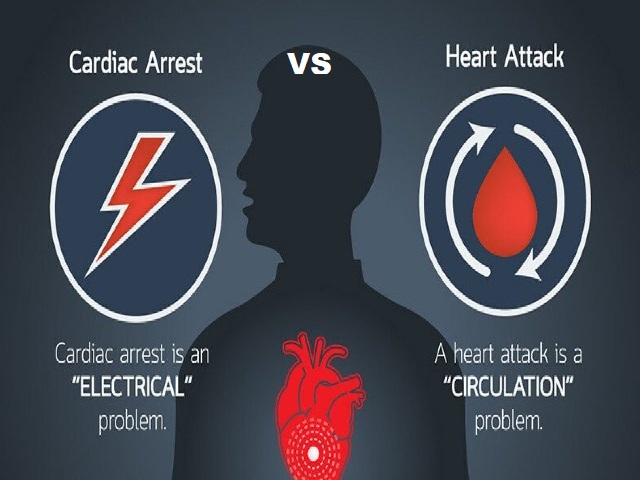A cardiac arrest can be confused with a heart attack by anyone with little medical knowledge. Although they look very similar, the two are very different.

Sridevi, the beloved Bollywood star and veteran actress, passed away in Dubai on February 24 at the age of 54. He reportedly suffered a serious cardiac arrest. They found her unconscious in the bathroom. A medical team was unable to revive her. When she was taken to the hospital, she was pronounced dead. The country misses her so much.
What is cardiac arrest?
Cardiac arrest occurs when the heart stops pumping blood. This occurs when there is a problem with the electrical signals within the heart. When the heart stops pumping oxygen into the blood, the brain stops receiving oxygen. This causes the patient to gasp for breath, which eventually leads to unconsciousness.
Cardiac arrest: causes and symptoms
Heart attack is the most common cause of cardiac arrest. There are many reasons. Heart attack is possible in people with congenital heart disease or problems with their electrical system.
Patients in cardiac arrest suddenly lose consciousness and fall. The warning sign of cardiac arrest is mild chest pain, shortness of breath, dizziness, and malaise. These are all signs that can be missed, but they may indicate cardiac arrest. The heart can also be affected by stress and some supplements.
A healthy lifestyle and balanced diet can help reduce the risk of heart attacks.

Is cardiac arrest the same as a heart attack?
Heart attack and cardiac arrest can be confused by people with little medical knowledge. Although they look very similar, the two are very different. A myocardial infarction, also known as a heart attack, occurs when blood flow to the heart suddenly stops. A heart attack is a medical term referring to a condition in which blood flow is reduced or absent in a specific area of the heart. Although the heart continues to beat and perform its functions, it may not function well. There is less chance of part of the heart recovering if it does not receive blood for a longer period. According to cardiologists, it is a problem with the “plumbing system” of the heart.
The heart stops beating in the event of cardiac arrest. This is often caused by a problem with the “electrical system of the heart.” Blood flow throughout the body stops once the heart stops beating. You may only have a few seconds to stop someone from breaking up. You may need to seek medical attention immediately.
Although circumstances may be different, there is a common thread. Although both conditions can be due to a heart attack, in some cases cardiac arrest can also occur. The most common cause of cardiac arrest is a heart attack. Other conditions that can cause cardiac arrest include cardiomyopathy (muscle disease) or electrolyte abnormalities, which can affect the heart’s electrical system.
A heart attack can cause symptoms such as pain, dizziness, and shortness of breath. However, cardiac arrest causes immediate loss of consciousness. A heart attack can be described as a circulatory problem, while sudden cardiac arrest refers to an electrical problem.
Survival chances
There are varying chances of surviving a heart attack or cardiac arrest. While CPR is essential for survival, nearly 90 percent of people who have cardiac arrest outside the hospital do not survive. If performed within the first few minutes of cardiac arrest, it may increase the chance of survival by up to three times.
Heart attacks are less dangerous and have a lower death rate. However, they can be cured quickly with appropriate treatment. Cardiac arrest can be treated by restoring blood circulation and electrical rhythm. For a heart attack, the goal is to reopen blocked arteries and allow blood to flow. If someone is in cardiac arrest, it is essential to immediately call 911 and begin CPR. Also, if the patient is having a heart attack, you should take him to the hospital.





